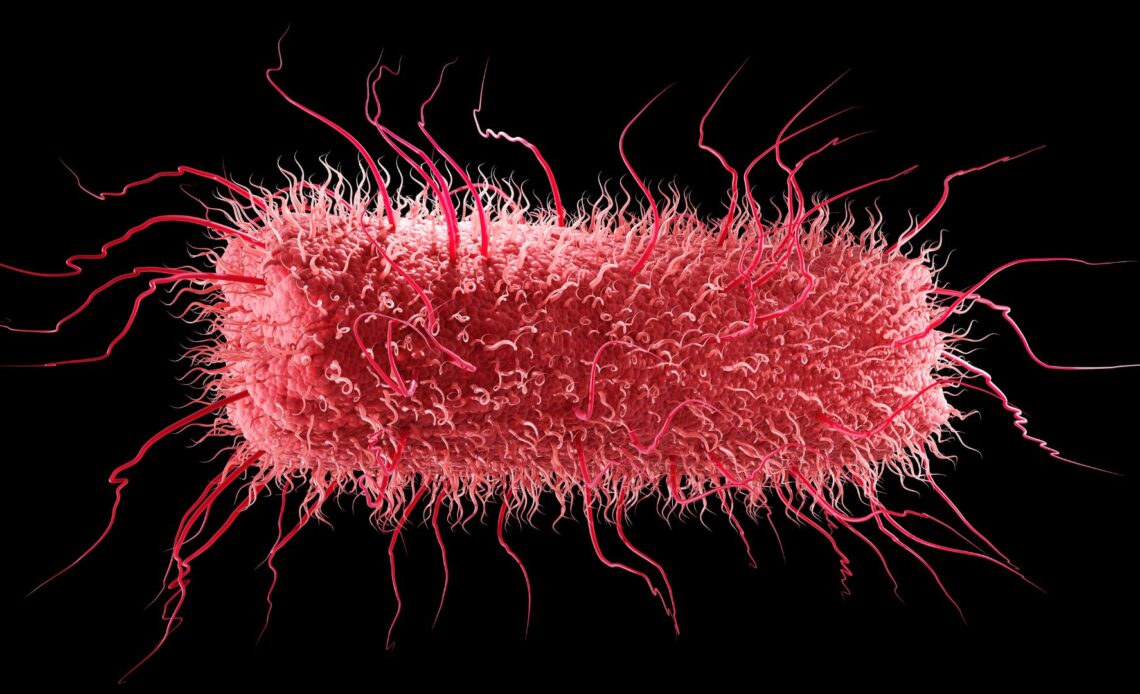Parkinson’s disease may sometimes start in the digestive tract and make its way to the brain, partly thanks to a chain reaction fueled by gut microbes, new research suggests.
The lower digestive tract hosts many microorganisms, collectively called the gut microbiome. In people with Parkinson’s disease, the balance of microbes in the gut shifts, with certain families of bacteria gaining a foothold over others. One family is known as Enterobacteriaceae, which includes the well-known microbe E. coli.
“As there’s more Enterobacteriaceae, there’s less motor function,” said senior study author Elizabeth Bess, an assistant professor in the Department of Chemistry at University of California, Irvine. In short, as the concentration of microbes increases, the movement-related symptoms of Parkinson’s worsen, she told Live Science.
Now, in two recent studies, Bess and colleagues have pinpointed a chain reaction that starts with E. coli and ends with abnormal protein clumps forming in the gut — the same protein clumps found in the brains of people with Parkinson’s.
Related: Scientists invent tool to see how ‘healthy’ your gut microbiome is — does it work?
Past research has suggested that, somehow, these clumps in the gut spur the formation of clumps in the brain, perhaps through the nerve superhighway that links the two organs. Thus, the new studies might help unravel how the gut microbiome contributes to that chain of events.
Not all cases of Parkinson’s are thought to start in the gut and spread to the brain; some likely do the opposite. “We don’t know what fraction is starting in the gut, at this stage,” Bess said. But by better understanding the gut-to-brain cases, scientists could potentially uncover ways of preventing this subtype of the disease, she suggested.
The researchers published their findings in March and July in the journals ACS Chemical Biology and ACS Chemical Neuroscience, respectively.
To learn how protein clumps form in the gut, the researchers first looked at past studies of the brain. Cells in the aging brain can accumulate iron that messes with the structure of dopamine, a chemical messenger. That dopamine, in turn, can react with healthy proteins called alpha-synucleins, causing them to clump. The team wanted to see if something similar might happen in the gut, where dopamine is also abundant.
The researchers grew E. coli in a lab dish alongside iron and nitrate, a…
Click Here to Read the Full Original Article at Livescience…

